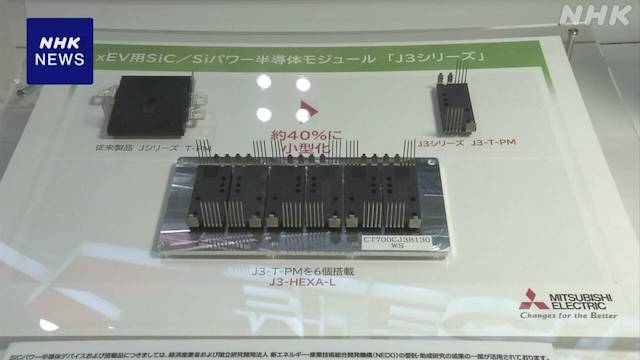TOKYO, Feb 06 (News On Japan) - As demand for power semiconductors used in electric vehicles (EVs) and other applications continues to rise, major Japanese semiconductor companies are accelerating their efforts to enhance development and production. Power semiconductors have been a strong suit for Japanese manufacturers, and strengthening this sector is becoming a crucial phase in enhancing their competitiveness globally.

In January, Mitsubishi Electric announced a new power semiconductor product that uses a durable and energy-efficient material known as SiC (silicon carbide). The new product is notable for its reduced size, shrinking to 40% of its conventional dimensions, which allows for the miniaturization of components installed in vehicles and is expected to extend the driving range per charge. Shinichi Kusunoki, the head of the Semiconductor & Device First Business Division at Mitsubishi Electric, stated, "To concentrate on the growing market, we are firmly launching products for automobiles."
Alternatively, Renesas Electronics has acquired an American company in January to move towards mass production of power semiconductors that use gallium nitride, a material with high energy efficiency. Additionally, Mitsubishi Electric, Fuji Electric, Toshiba, Rohm, and Renesas are planning to increase their production capacity from this year onwards.
Japan has traditionally excelled in power semiconductors, but as global demand increases, competition with international players, such as the leading German company Infineon, is intensifying. It is a critical moment to see if Japanese companies can enhance their competitiveness in the global market.
Source: NHK















